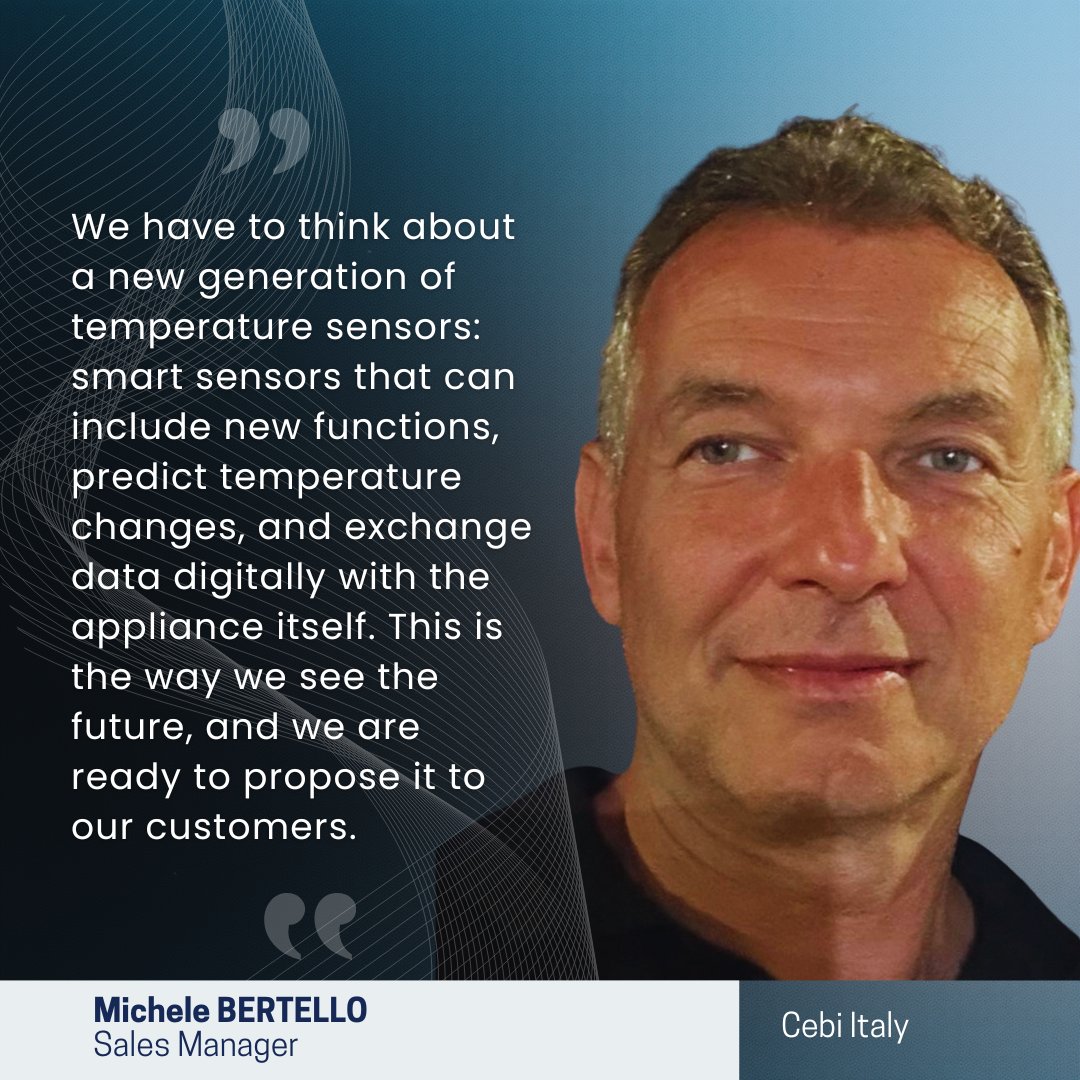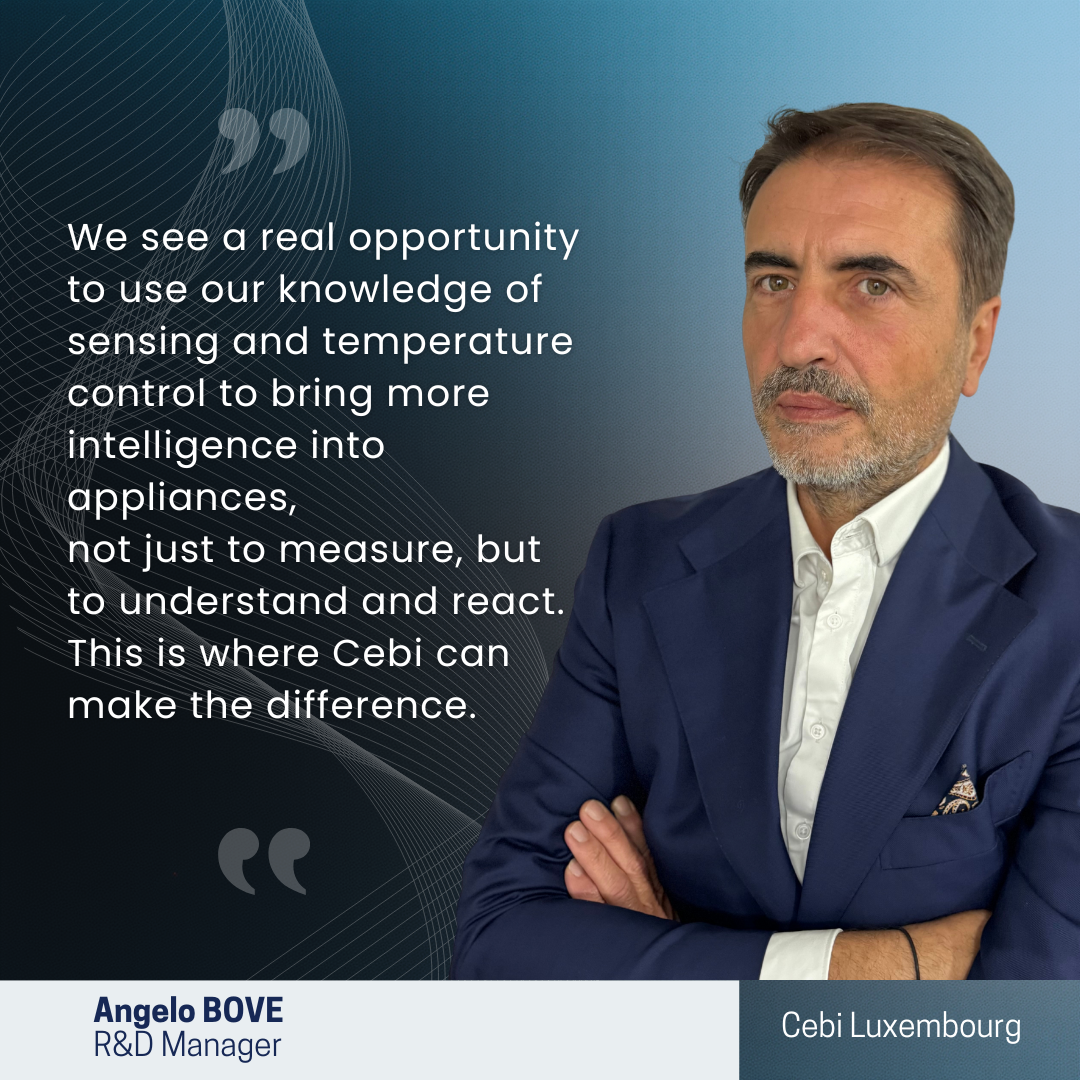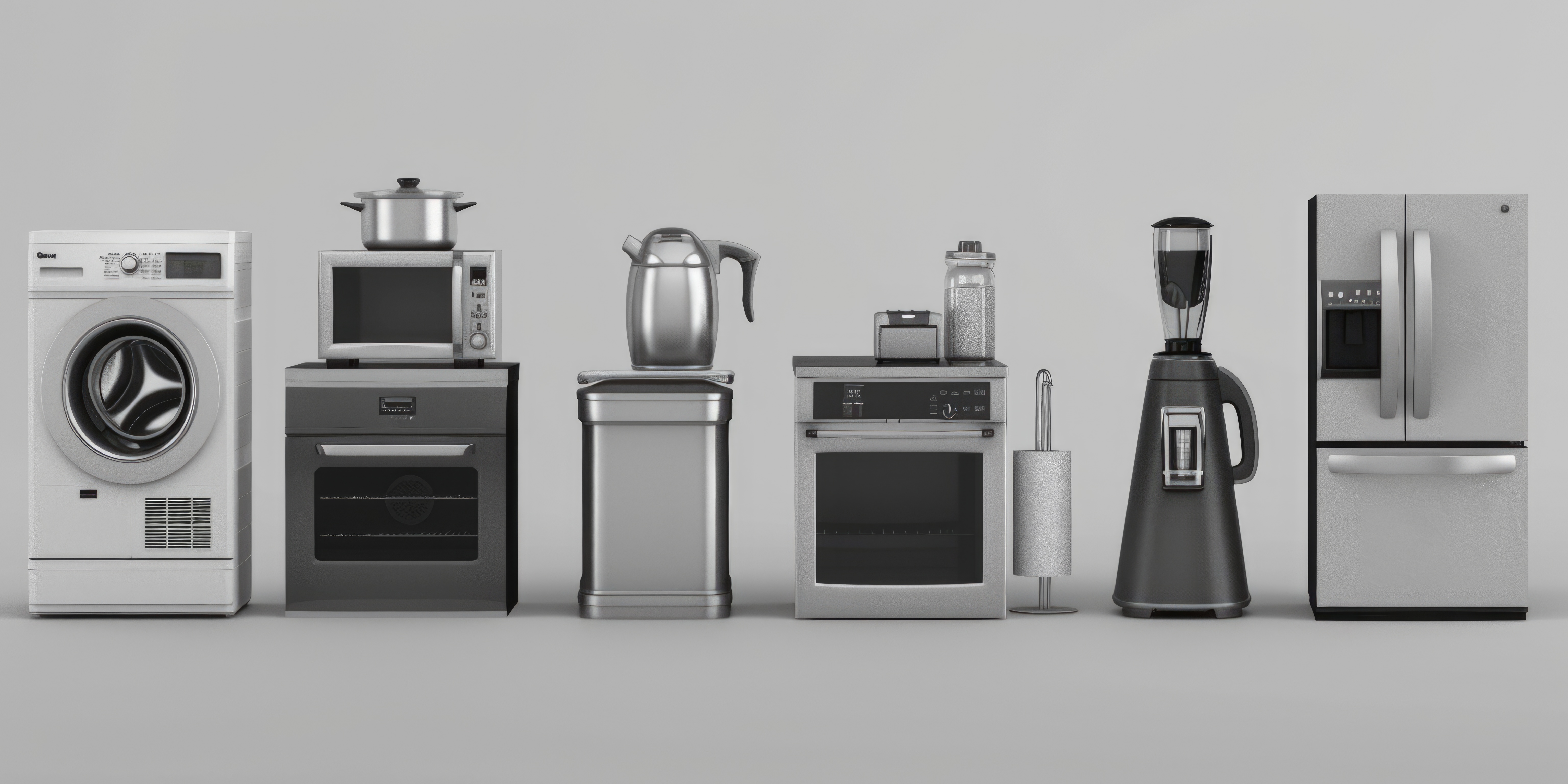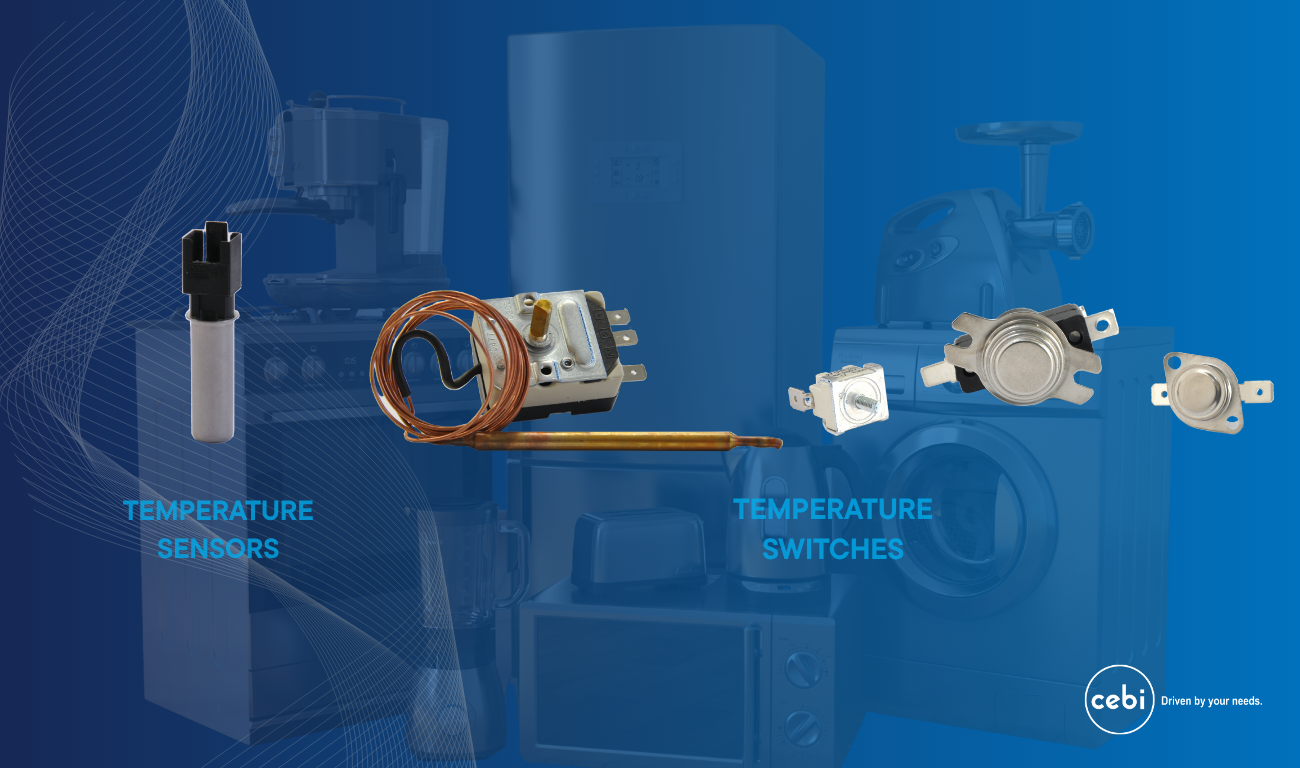Meeting the Next Challenge in Household Appliances: Precision and Intelligence
Meeting the Next Challenge in Household Appliances: Precision and Intelligence
The household appliances industry is undergoing a profound transformation, driven by the convergence of energy efficiency, digitalization, and user-centric design.
Technological Trends
Modern consumers and manufacturers alike demand appliances that are not only reliable and durable but also intelligent, adaptive, and connected. As a result, the industry is shifting from purely electromechanical control systems toward integrated smart sensing and regulation solutions that ensure optimal performance, safety, and sustainability.
Traditional thermostats remain vital for safety and basic temperature regulation. Yet, the next generation of appliances increasingly relies on NTC-based smart sensors capable of delivering real-time thermal data and enabling adaptive control, predictive maintenance, and self-learning energy optimization. These intelligent systems form the foundation of AI-ready appliances, with sensing, data processing, and automation converge.

From Advanced Sensing to Multi-Functional Platforms
Cebi anticipated this evolution through the development of advanced sensor technologies and thermal management systems capable of meeting tomorrow’s technical and regulatory challenges. While traditional thermostats remain a key safety and regulation component, the trend is moving toward NTC-based smart sensors that provide real-time temperature feedback and enable predictive control. These sensors can be integrated into digital platforms, allowing data transmission, diagnostics, and adaptive learning functions.
Cebi’s engineering teams are also exploring multi-functional sensor platforms, combining temperature, pressure, and environmental detection within a single module. These developments illustrate the company’s commitment to innovation and continuous improvement in sensing technologies. By integrating multiple capabilities into compact, intelligent systems, Cebi aims to deliver smarter, more efficient solutions that help OEMs design the next generation of connected and sustainable appliances.

Market Dynamics
The household appliance market can be segmented into three main sectors:
- Major domestic appliances such as ovens, washing machines, dryers, and refrigerators;
- Small domestic appliances including coffee machines, grinders, and personal care equipment;
- Professional and industrial appliances such as vending machines, beverage systems
Each of these sectors presents specific production, cost, and customization challenges. High-volume segments, such as large domestic appliances, are characterized by strong price sensitivity and standardized designs, requiring suppliers to ensure process repeatability, reliability, and cost efficiency. Conversely, the professional and industrial segments emphasize custom-engineered components with precise performance and durability requirements.
Geographically, the global appliance production remains concentrated in China (25%), Europe (18%), and North America (14%), where top manufacturers such as Whirlpool, LG, Samsung, Haier, Bosch, and Electrolux drive innovation and define industry benchmarks.
Customer Expectations
OEMs and Tier-1 suppliers in this sector expect partners capable of delivering highly reliable, certified, and customizable components that comply with international safety and energy regulations. The growing need for tight temperature control, safety redundancy, and compact system integration demands suppliers that master both thermomechanical and electronic technologies.
Customers also value suppliers who can anticipate future needs from IoT-enabled systems to sensor fusion technologies, and translate these into feasible, industrial-grade solutions. Beyond the household segment, emerging opportunities in medical and laboratory equipment show that similar components, such as temperature sensors and thermostats, can be applied across adjacent markets requiring precision and traceability.

How Cebi Technologies Helps OEMs Meet the Next Challenge
Cebi has been a pioneer in temperature control and sensing technology since 1976, with its Luxembourg site historically dedicated to the design and production of components for the household appliance sector and its other Competence Center located in Italy. The company’s expertise lies in the integration of thermal, mechanical, and electrical engineering to develop components that ensure safety, performance, and accuracy under demanding operating conditions.
Cebi’s core technologies include:
- Thermal switches (thermostats): electromechanical components that regulate or protect heating systems through precise on/off control. Cebi designs and manufactures key internal elements such as bimetal discs, contacts, terminals, and housings entirely in-house, guaranteeing full control over material quality and functional calibration. The product families 261, 262, 263, and 271 are recognized for their robustness and reliability across appliances such as ovens, dryers, and coffee machines.
- NTC temperature sensors: based on Negative Temperature Coefficient thermistors, with resistance changing as a function of temperature, enabling accurate temperature monitoring. Cebi integrates these sensors in various assemblies, combining them with mechanical protection or customized connectors to fit specific applications.
- Advanced sensor platforms : ongoing R&D projects explore smart and multi-sensing architectures that integrate temperature, pressure, or even optical functions (e.g., color detection). These developments open the path toward predictive control and digital connectivity, aligned with the future of smart home ecosystems.

With a vertically integrated production process, from plastic injection and metal stamping to calibration and certification, Cebi ensures total process reliability and full traceability. Its products are compliant with major international standards and meet the stringent requirements of leading OEMs (up to 330°C certified operation).
By combining decades of experience in thermal protection and sensing systems with continuous innovation in smart sensor technologies, Cebi stands as a technological reference in the household appliances market, capable of bridging traditional mechanical reliability with the intelligence of tomorrow’s connected devices.